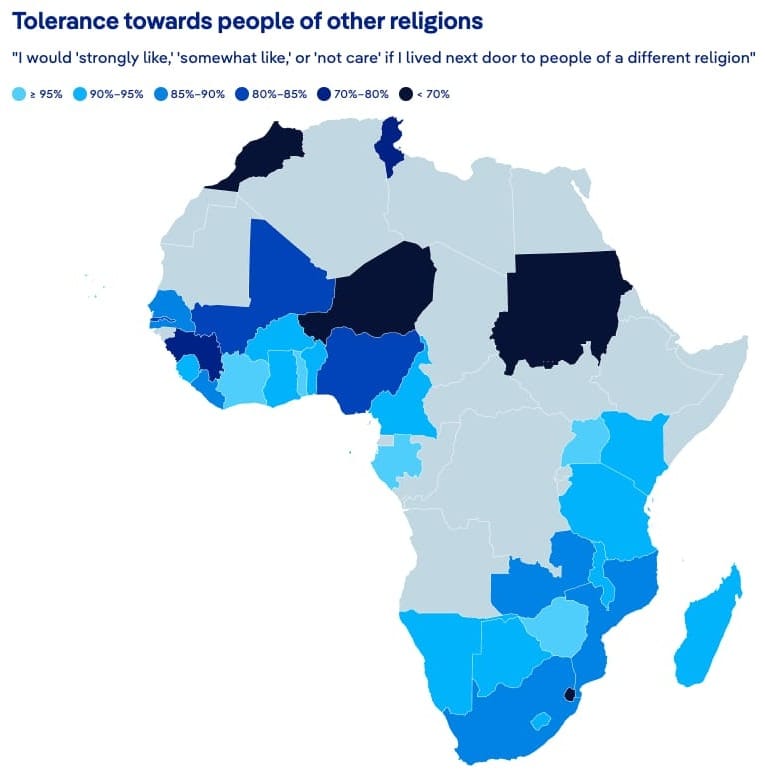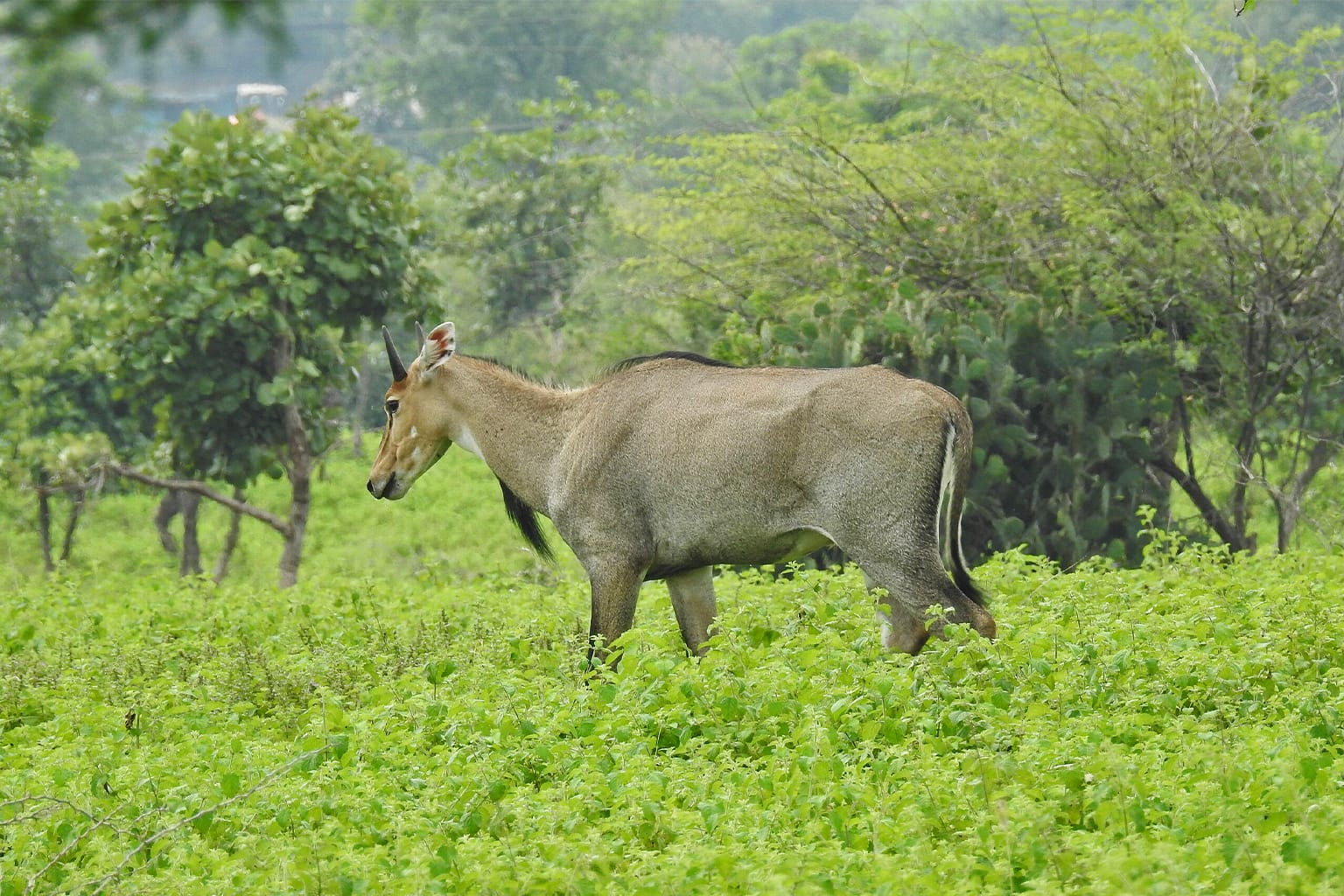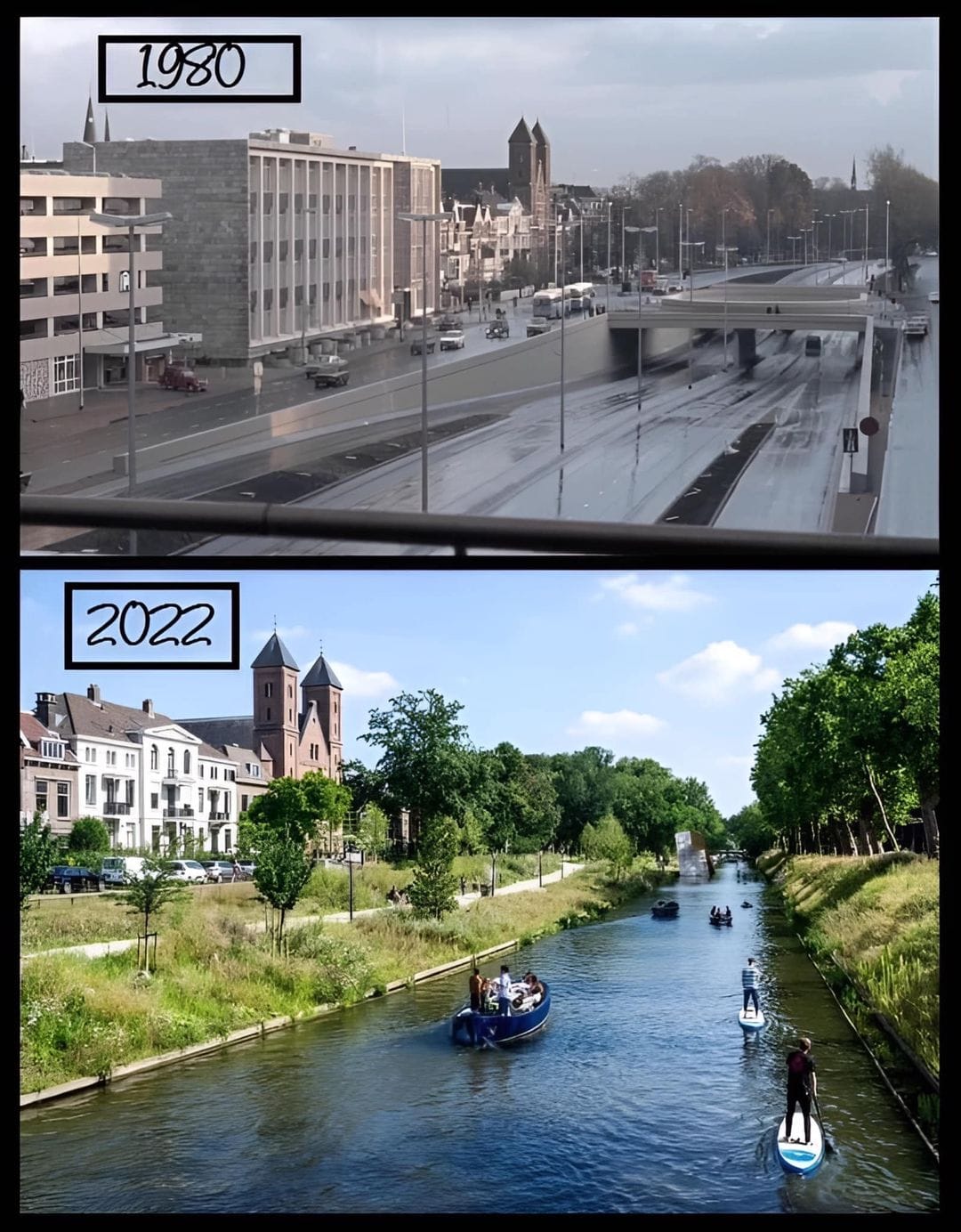This is our regular round up of stories of progress from around the world. If you'd like to join the 51,000 people who get this in their inbox every week, you can subscribe for free below.
Good news for people
India makes significant progress on malaria
Since 2016, India has made remarkable progress in combatting one of the country’s biggest public health challenges. In 2022, there was an 85.1% decline in malaria cases and 83.3% fewer deaths compared to 2015. The country is now focused on managing the disease in hard-to-reach areas. WHO
Cambodia reaches TB targets four years ahead of schedule
Over the last two decades, Cambodia has achieved a 45% decrease in both tuberculosis deaths and new cases, thanks to free-of-charge treatment and high treatment rates (over 90%). Since 2000, the country’s TB control efforts have saved an estimated 400,000 lives. The Star
Everything in America is awful
Apart from the fact that marriage rates are up and divorce rates are down, the percentage of Americans without health insurance has fallen by almost half since 2010, employment for people in their prime working years is at its highest level in more than two decades, manufacturing construction spending has climbed to $225 billion per month, cholesterol levels are gradually improving across the country, and life expectancy has increased for the first time in two years thanks to a levelling off of overdose deaths.
Netherlands adopts consent-based definition of rape
In a historic victory for survivors of sexual assault, the Netherlands has become the 17th EU state to legally recognise that sex without consent is rape. The reform comes after years of activism and is 'an important move towards preventing and combatting sexual violence and improving access to justice for survivors.' Amnesty
Senegal reverses constitutional crisis and conducts free elections
Our friends at the Progress Network have a great story on how Senegal managed to avert a potential fight over executive versus judicial legitimacy in the lead-up to its recent elections. Instead, the country saw a high voter turnout and the first election of a progressive party since 2000.

How Mauritius became a development success story
In the 1960s, Mauritius was a sugarcane-based, low-income country with a per capita income of $260. Today it's a politically stable, upper-middle-income country with a per capita income exceeding $10,000. This development ‘fairytale’ resulted from strategic efforts to boost and diversify growth across agriculture, tourism, financial services, and information technology. World Bank
Mauritius improves healthcare for 260,000 seniors
The island is also stepping up its healthcare to provide for a rapidly ageing population. The integrated approach includes early screening for physical and mental impairments for older people, four new dementia clinics, targeted training for healthcare workers, and national awareness campaigns. WHO
Abortion decriminalised in every state and territory in Australia
Western Australia was the last state to include abortion care access in its criminal code. New changes to the code mean that patients in Australia can no longer be criminalised for abortion care access, a hard-won milestone for the country. Woman's Agenda
A victory for migrants and refugees in Canada
All ten provinces in Canada have now confirmed they will no longer allow the federal government to detain migrants and asylum seekers in local jails. The victory is thanks to the #WelcomeToCanada campaign that launched in 2021 to end the practice. HRW
We commend the provinces for their decisions to stop locking up refugee claimants and migrants in jails solely on immigration grounds. There is now clear pressure for the federal government to stop this rights-violating system across the country.
Ketty Nivyabandi, Secretary General, Amnesty International Canada
Africa's 'deep-rooted' culture of religious tolerance
Africa is one of the most religious places on earth, and it also has one of the highest rates of religious tolerance. On average, almost 9 out of 10 people say they would live next door to people of a different religion. Of the 47 Muslim-majority countries in the world, only 11 protect the right to religious freedom—eight of which are found in Africa. DW

More good news you didn't hear about
Africa has achieved its highest detection rate for TB, with around 70% of cases now being diagnosed and treated. Colombia has extended a ceasefire with ELN rebels for another six months. A new project will improve health services for 7.5 million people in Lao PDR. Irrigation systems in the Sahel are changing the lives of 390,000 small farmers, 49% of whom are women. Jamaica’s social protection system is being bolstered to benefit 290,000 vulnerable people. India is getting serious about eliminating measles. Brazil is releasing millions of anti-dengue mosquitoes to combat an outbreak of the disease. A new study says we’re getting closer to a universal anti-venom for snake bites. South Africa has restored almost 25% of farmland to original owners since the end of apartheid. Innovative measures are being used to solve water scarcity in the Gulf. A biodegradable contraceptive implant could improve access to contraception globally. Cutting-edge cancer therapy is now being produced in India for one-tenth of the cost. North Macedonia has halved its poverty rate since the global financial crisis.
If it bleeds, it leads
A new study in Nature just put some numbers on what is arguably the most important rule in journalism. Why are most headlines filled with gloom? Because news headlines containing negative language are more likely to be clicked on than those containing positive words. Specifically, for a headline of average length, each additional negative word increases the click-through rate by 2.3%. By contrast, for each positive word in a headline of average length, the click-through rate decreases by 1.0%.

The study found that these were the most frequent negative words in headlines:
1. Wrong
2. Bad
3. Awful
4. Hate
5. War
6. Worst
7. Sick
8. Fight
9. Scary
10. Hell
Which would make this the most effective headline ever:
In a Scary Escalation, the World's Worst and Most Hellish War Ignites a Hate-Fueled Fight, Exposing What's Awful, Bad, and Fundamentally Wrong in a Sick World
(this is why we cannot have nice things)

Good news for the planet
Deforestation in the Amazon plummets in February
Lula is keeping his promise. New satellite data from February show that deforestation in Brazil's Amazon rainforest fell 30% from a year earlier. 'The trend is still the same we had been seeing in 2023: a drop in Amazon deforestation, an increase in Cerrado deforestation.' Reuters
Endangered seabirds flourishing on restored Chilean island
A lot can happen in 30 years. Here are a few of the islands around the world that have been restored over the last three decades—and it looks like another one has just been added to the list, after Peruvian diving petrels have been observed flourishing on Chañaral Island after it was cleared of invasive rabbits.
Toxic chemical releases decline by a fifth in the United States
The EPA just released a new report showing that environmental releases of toxic chemicals from sectors such as manufacturing, mining, hazardous waste management, and electric utilities were 21% lower in 2022 compared to 2013. This includes a 26% decrease in chemicals being released into the air. Cleantechnica
US provides funding for projects to restore habitat connectivity
The Department of the Interior and the National Fish and Wildlife Foundation just announced funding for ten projects to protect migratory species such as elk, mule deer, and pronghorn and their habitats in Arizona, California, Colorado, Idaho, Montana, Oregon, and Wyoming. DOI
Comeback on the cards for Asian antelope in Bangladesh
The largest antelope species in Asia, the nilgai, is making a comeback in northwestern Bangladesh after being hunted to extinction in the 1930s. Recent forays back into their historical habitats indicate that Bangladesh is once again hosting nilgais within its borders. Mongabay

Aruba will be the second country to recognise rights of nature
The government of the small Caribbean nation is moving to change its constitution to recognize that nature has inherent rights and also to affirm a human right to a 'clean, healthy and sustainable environment.' If successful, it would join Ecuador, which enshrined the rights of nature in 2008. Inside Climate News
New area protects freshwater for Bolivia’s largest city
Bolivia has created the new Fuente de Vida ('Source of Life') protected area, a 77 km2 water corridor which safeguards freshwater sources for over 2.4 million people in the city of Santa Cruz. The area also adds to a conservation corridor that includes the Carrasco and Amboró National Parks. Andes Amazon Fund
The world's largest trees are thriving in the United Kingdom
More than a century ago, the Victorians were so impressed by redwoods that they brought them home and planted them. It's estimated there are now half a million redwoods in the UK, compared to around 80,000 mature giants in California, and people have finally started noticing them sticking up above the other trees. BBC
Paris has become one of the most bicycle-friendly cities on Earth
Within a year of building 52 km of bike-friendly 'corona tracks,' 60% of users were new to cycling, while the proportion of women increased by 14%. Cyclists in the French capital now have more than 1,000 km of bike paths and marked routes, up from 200 km in 2001, and a further 130 km will be added by 2026. Cities Today
The US is fixing a century-old problem for fish
Ben Goldfarb explores the impact of culverts on migratory fish populations, highlighting new efforts to address this issue. With the replacement of outdated culverts, sea-run fish like salmon can navigate waterways more freely. 'It was one of those problems that I never thought I would see fixed in my lifetime.' Hakai

More music for those who will listen
What is rewilding, and why is it our best hope? California's Yurok Tribe will become the first Native people to manage land with the National Park Service. Scotland bans snares and other brutal wildlife traps. Many coral reefs are dying. This one is exploding with life. Custodianship of California redwood forest returns to ten Native American tribal nations. Volunteer-led rewilding projects are helping restore degraded habitats in Australian cities. The federal government takes the first steps to start cleaning up abandoned uranium mines in the Navajo Nation’s Lukachukai Mountains. Wolves are thriving again across western Europe. Sea lion populations in New Zealand cities 'turn a corner.' Things are looking up for gray whales, with populations expected to rebound. The Dutch city of Utrecht celebrates the restoration of its 900-year-old moat, 40 years after it was cemented over to accommodate a 12-lane highway.

That's it for this edition, we'll see you next week.
With love,
Gus


